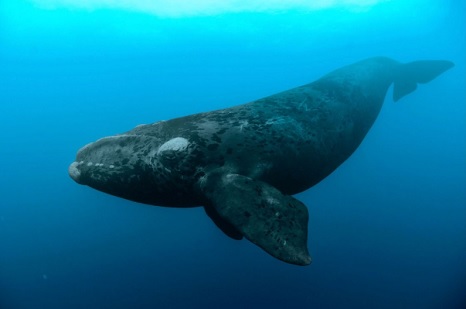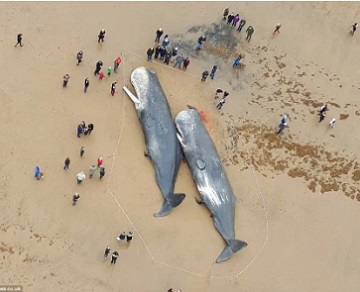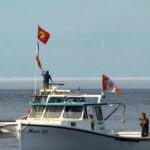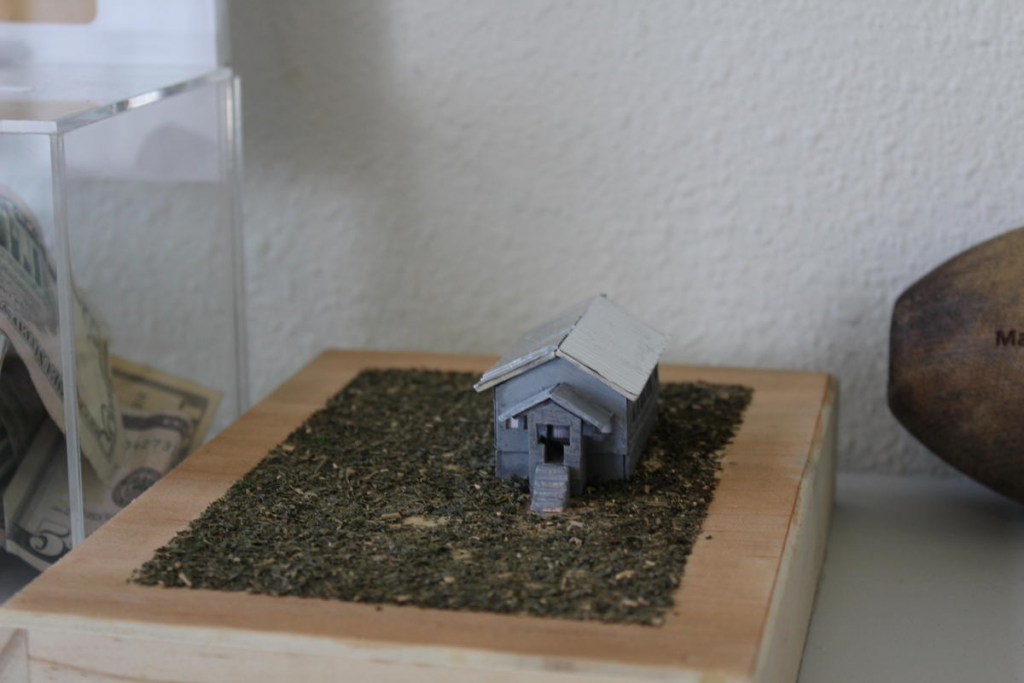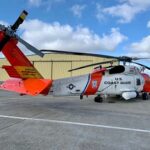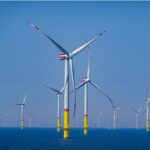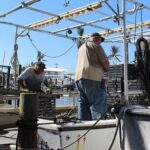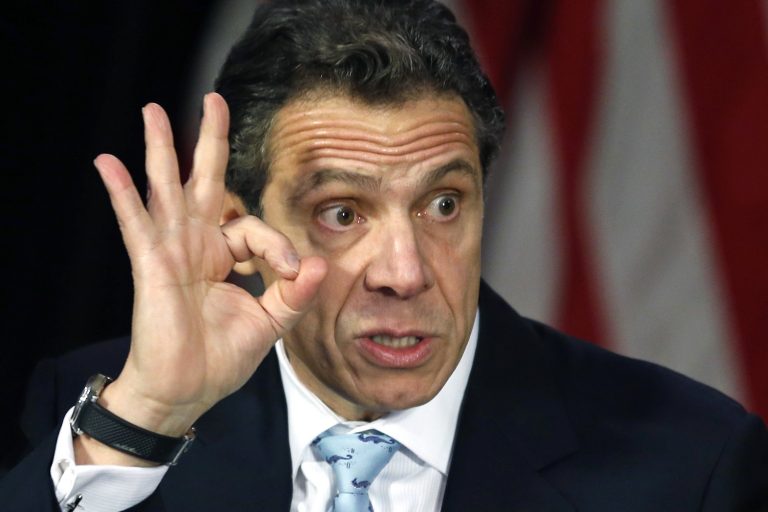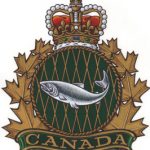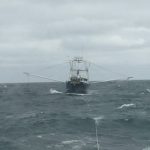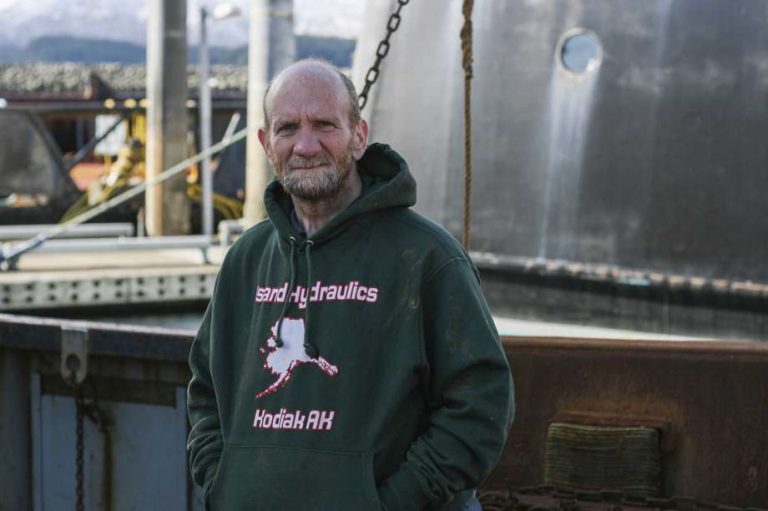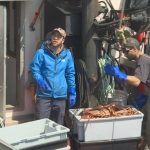Tag Archives: offshore wind farms
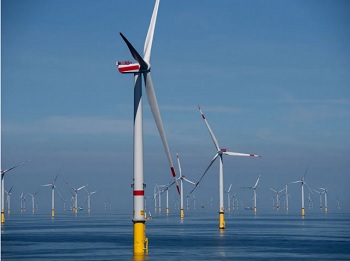
Contrary to mainstream belief, wind turbines are neither effective nor, in many cases, good for the environment
Claims of wind power being pro-environment often do not consider the damaging effects these projects can have on wildlife and ecosystems, thus hiding the “true cost” of such initiatives. Wind power projects can threaten birds that fly within their vicinity and trigger a decline in their population; it can harm marine life due to noise pollution and affect the growth of plants in the region where it is located. Driven by subsidies granted by the federal government, the growth of wind projects has triggered concerns about the cumulative impacts they have on the environment. There have been growing protests against wind power projects across the world. In the United States, people have opposed setting up wind turbines in Lake Erie due to concerns about the environmental impact of the project. In New Jersey, protestors have asked to pause the development of an offshore wind farm which they claim has led to dolphins and whales washing ashore. >click to read< 12:38

Maine fishing industry forum held in Waldoboro
On Wednesday, May 24, a crowd of over 100 concerned citizens attended a forum at the Coastal Christian Academy in Waldoboro on the challenges facing our lobster industry. Forum participants focused on the history of lobstering as a self-regulated, sustainable fishery, right whale protections, and the impact of offshore wind power. William “Billy Bob” Faulkingham of Winter Harbor, Maine House District 12 Representative, House Minority Leader and a fourth-generation lobsterman, was the first speaker. Dustin Delano, chief operating officer of the New England Fishermen Stewardship Association and former vice president of the Maine Lobster Association, was the second speaker. Jason Joyce, an eighth-generation lobsterman from Swan’s Island, was the final speaker. >click to read< 11:40
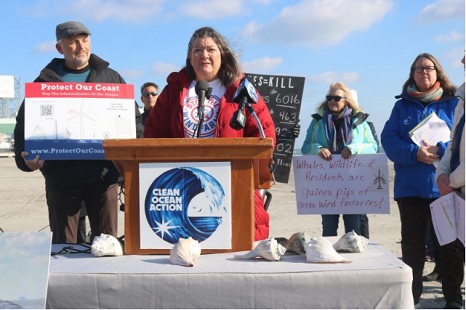
Wind Farm Opponents to Host Fundraiser For Legal Defense Fund
For nearly four years, opponents of a proposed offshore wind farm that they say could negatively affect marine life, tourism, the commercial fishing industry and wildlife have held protests and signed petitions calling for a halt to the project by Danish energy company, Orsted. Protect Our Coast NJ founder Suzanne Hornick, of Ocean City, said the time is now to stop offshore wind farm projects to protect the environment. “Protect Our Coast NJ is fighting to protect our coastal community and our ocean from the extreme industrialization currently planned for our shores,” Hornick said. “We know that the proposed projects which could see thousands of gigantic turbines and substations off our coast will destroy our community, quality of life, economy, ecosystem, food supply, national security, and more.” >click to read< 07:55
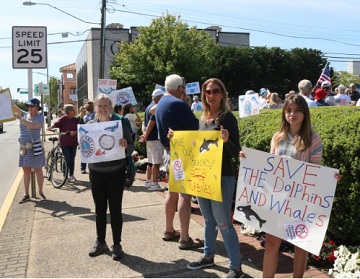
Wind Farm Protesters March in Ocean City
Opposition to the wind farm has been mounting following more than 30 whale deaths along the East Coast that critics have blamed on sonar mapping of the seabed that is needed for construction of the project. However, government agencies such as the National Oceanic and Atmospheric Administration and the New Jersey Department of Environmental Protection say the recent deaths of whales, dolphins and other marine creatures in New Jersey and other coastal states have nothing to do with the wind farm work. They say evidence shows that most of the whales were struck and killed by shipping traffic. Opponents reject those claims, though. During Saturday’s protest, speakers pointed the finger at the wind farm for the whale deaths and warned of other possible dire impacts that the project could have on the Jersey Shore’s environment, the tourism industry and commercial fishing operations. Photos, Video, >click to read< 07:55

Cape May County to fight Ørsted, Ocean Wind 1, 2
“At first, the County of Cape May was interested in trying to work with Ørsted to find a way forward, perhaps with some modifications to the project to reduce visual, environmental and economic impacts,” Commission Director Len Desiderio said in a release issued by the county. “We would like to see land-based offshore wind facilities and supply-chain infrastructure built here in New Jersey, since that would create good opportunities for trade workers and others. But we cannot sit quietly by as hundreds of windmills are installed off our beaches as state and federal government agencies ignore our legitimate and serious concerns. “As time went by, it became clear that Ørsted was not interested in finding any compromise,” Desiderio said. “It is clear to us now that the approach among this foreign corporation and their partners in the state and federal governments is to build these things as fast as they can despite the potential for devastating environmental and economic impacts. >click to read< 09:42

First Lawsuit Over Whales and Wind Dismissed
A federal district judge in Massachusetts has rejected an effort to stop an offshore wind project near Nantucket Island on the basis of danger to whales, apparently the first court test of similar claims being raised against wind turbine proposals along the U.S. eastern seaboard, including here in Virginia. On May 17, U.S. District Judge Indira Talwani granted a motion for summary judgement to the federal agency that approved the Vineyard Wind One project. With a planned 84 turbines, the project is about half the size of Dominion Energy Virginia’s planned project off Virginia Beach. Both are just the first phases of larger planned buildouts. The same judge is hearing the other cases, with the two from fishing interests now combined. >click to read< 09:47
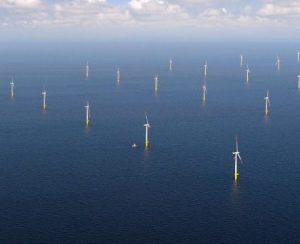
California: Can wind energy and fishing industry co-exist on the coast?
A statehouse hearing on offshore wind energy explored “The Future of Fisheries and Offshore Wind Energy in the Golden State” and fishing representatives said the scenario is unknown and they’re concerned. Fishermen are bracing for impacts to their livelihoods, as leases for five areas off the California coast, including two in Humboldt making up about half of $775 million plus in lease sales, have been federally-approved. Unavoidable impacts to fishing are expected so compensation for consequences like loss of fishing grounds will eventually be calculated. But fishing representatives said at this point the scale of the impacts can only be guessed and the leasing process hasn’t been inclusive enough. >click to read< 11:12
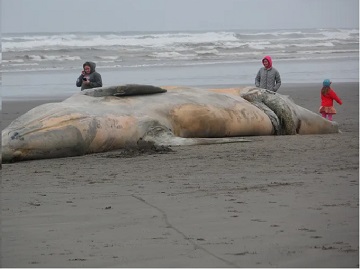
Saving The Whales. The Fight Against Offshore Wind Farms.
As nine European countries sign a declaration to turn the North Sea into a huge industrial wind farm zone, they have effectively committed to wiping out wildlife on a monstrous scale; a mass, indiscriminate, destruction of life forms that have survived for millennia. A shocking opinion? Yes, but also a real possibility – and one thing is very certain, this is nothing to do with ‘green’ energy, ‘net zero’ or climate change. This is everything to do with greed and folly, a lethal combination. Whale Deaths And Wind Farms – An Obvious Connection >click to read< 08:45
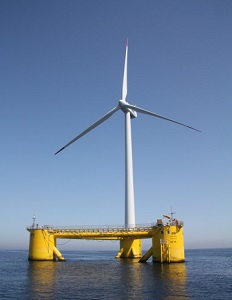
Role of Unionized Firms at Center of Maine’s Offshore Wind Debate
On Thursday the Maine Legislature’s Energy, Utilities and Technology Committee held a public hearing on a proposal to pave the way for the development of offshore wind infrastructure in the Gulf of Maine, including the construction of a coastal manufacturing facility that would build the offshore floating wind turbines Lawmakers also considered Thursday Rep. Tiffany Strout’s (R-Harrington) LD 1884, a bill that would block offshore wind developments. In recent years, the prospect of filling the Gulf of Maine with hundreds of wind turbines has taken on an air of inevitability, with environmental groups, industry groups, and well-paid lobbyists pouring millions of dollars into political pressure campaigns and ad campaigns designed to build support for the project. Unions, construction companies, investment companies, and lobbyists are all lining up to secure their share of what could be one of the largest taxpayer-funded projects in the history of the state. >click to read< 09:42

New London: Does Orsted/Eversource charter of NL fishing boats violate city lease?
Many fishermen resent the interference in the waters they regularly use and suggest still-unknown harm will be done to undersea environments and marine life. But I didn’t realize until recently that wind partners Orsted and Eversource actually have a fishing fleet strategy, chartering some fishing boats to “scout” for their wind turbine work in offshore fishing waters. One fisherman I met recently, Rob Morsch, claims the big utilities are driving a wedge between fishermen by “buying off” some of them with thousands of dollars in daily charter fees. Morsch raises the interesting point that the mooring of the boats being used for offshore wind, he calls them “windmill boats”, is a violation of the city’s intent, with its low-cost rent, to have a fishing fleet based there. >click to read< 08:10
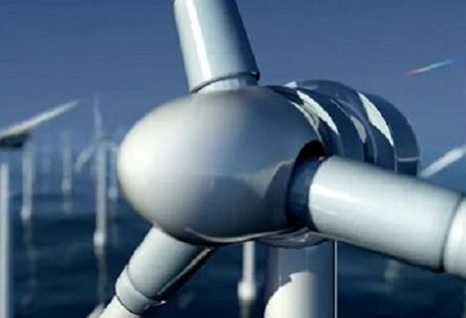
Wind project scope ‘staggering’
It wasn’t “until the whales and the dolphins started washing up that people’s attention was able to focus” on the offshore wind farms, according to Cindy Zipf, and when people looked beyond the whales, they realized what is happening is “staggering.” “I don’t think ever in the history of mankind have we proposed to industrialize an ecosystem this fast and at this magnitude,” she said. Zipf is executive director of Clean Ocean Action, a coalition of groups dedicated to protecting the ocean. Zipf acknowledges the pace at which the plans are moving forward is making efforts to slow or stop them difficult. “It’s challenging considering how fast-tracked everything is and how limited the permitting process is. It’s kind of under the jurisdiction of two people to make it happen, President Biden and Gov. Murphy,” she said. “Hopefully as more is understood there will be some more caution but as it is right now the (state and federal) agencies are very enthusiastic.” >click to read< 16:29

Congressman Van Drew Joins Chairman Westerman on Natural Resources in Leading Letter to GAO Requesting Offshore Wind Study
“BOEM and offshore wind companies have engaged in a sloppy and rushed environmental review process—ignoring national security concerns, ignoring concerns from our fishermen, and ignoring impacts on our ocean life—all in the name of ‘climate change,'” said Congressman Van Drew. “We must continue to demand transparency throughout this process. Without diligent oversight, we risk not only our natural resources and local economies, but the livelihoods of the constituents we serve as well. I thank Chairman Westerman for his support in uncovering the real impacts these offshore wind turbines will have on our coast, including the economic impact on pertinent industries and the effects on sensitive environments.” >click to read< 10:31
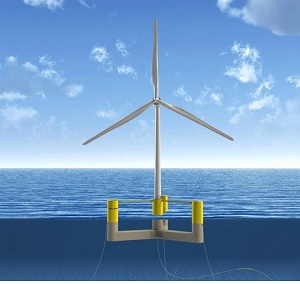
Old lumber port preps for new life as California offshore wind hub
Eureka’s halcyon days as the “timber capital” of California are long gone, but the deepwater port city 270 miles north of San Francisco may see its fortunes turn as the hub of the state’s first foray in offshore wind energy. Eureka sits across two of the five swaths of Pacific Ocean along the California coast that the federal government auctioned off to offshore wind developers this past December for a total of $757 million. The three other leases are on the Central Coast across from Morro Bay. Humboldt Bay, the second-largest bay in California after the San Francisco Bay, is ideally suited to become the final assembly port for the massive turbines. >click to read< 15:43
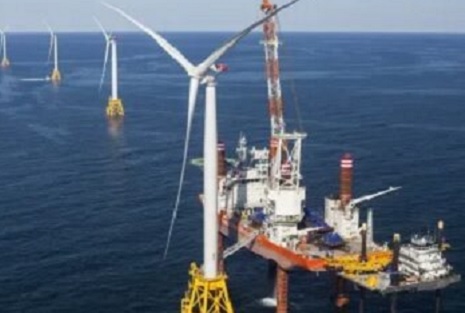
Where have all the dead whales gone? By Nils Stolpe, FishNet-USA
Beginning in December of last year and extending through most of the first quarter of 2023, New Jersey and New York beaches were inundated with abnormally high numbers of dead or dying whales and smaller marine mammals. These majestic creatures-though not so majestic when being pushed about willy-nilly by tides, wind, waves and various types of earth moving machines-have never expired in such large numbers in such publicly accessible locations in local residents’ memories. Perhaps coincidently, intensive hydroacoustic surveys to determine the suitability of potential sites for the construction of thousands of gigantic windmills and their supporting infrastructure (supposedly to help us all survive what is being sold as an imminent energy/climate crisis) were being committed offshore of the beaches where all of these marine mammal deaths and strandings have been concentrated. To us inveterate observers of that hunk of Atlantic Ocean real estate known as the New York Bight, and the critters that temporarily or permanently live there, and of the actions of the public agencies charged with-and entitled to tens of millions of taxpayer dollars each year to do so-administering the Endangered Species and the Marine Mammal Protection Acts, that surely hints at, at best, ineptitude at that’s ineptitude at a fairly advanced level. >click to read the article< 16:14
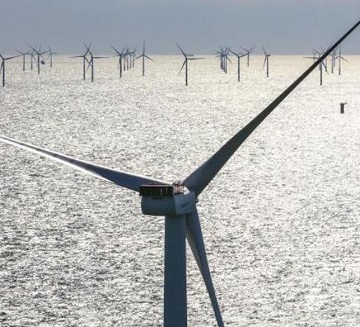
Planned Tenfold North Sea Windfarm Expansion by 2050
The fishing industry is alarmed by drastic plans to massively increase windfarm capacity in the North Sea. Fishing industry leaders already fighting to retain fishing grounds for their members are deeply alarmed by the plans to increase of offshore wind power by ten times current levels by 2050, to develop ‘energy islands’ of interconnected sites and carbon capture projects. Mike Cohen, chief executive of the National Federation of Fishermen’s Organisations (NFFO), said the development would be on the agenda for discussion at the next meeting of the international fishermen’s movement, the Northern Fishing Alliance (NFA), which represents fishermen from six countries fishing in the North Sea. >click to read< 12:38
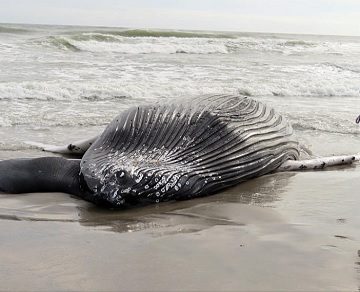
Wind farms creating ‘death zone’ at sea says ex-Greenpeace boss
Drilling foundations for offshore wind turbines and sound pulses used to prepare for the 900-foot towers may be creating a “death zone” for whales, a former Greenpeace chief claims. Patrick Moore, a co-founder of Greenpeace and its ex-president in Canada, believes the acoustic systems used by vessels surveying the ocean floor harm the marine mammals’ sense of hearing, risking their crucial ability to navigate, and leading to more dead whales washing up onshore. At least 36 “large” whales have washed up along the East Coast since Dec. 1, according to data from the National Oceanic and Atmospheric Administration. photos, >click to read< 07:51
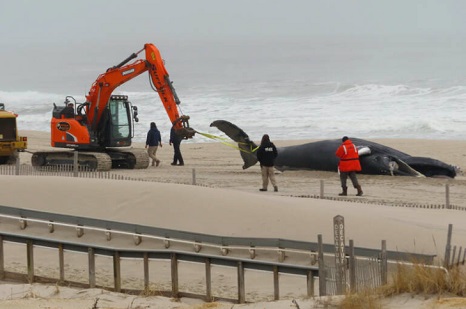
N.J. GOP seeks wind projects halt to see if whales benefit
Four state senators hosted a online hearing about offshore wind energy generation and whale deaths, three weeks after the most recent East Coast whale death was reported and despite the assurances of most scientists and conservationists that there is no correlation. The two-hour hearing came a week after Democrats, who control the Legislature and the governorship, held a similar hearing and many of New Jersey’s major environmental groups said the greatest danger to whales is climate change, not offshore wind generation. “I’ve been labeled a climate change denier and a tin-foil hat wearer,” said Jim Hutchinson, managing editor of The Fisherman,,, U.S. Rep. Frank Pallone Jr., who represents part of the Jersey Shore and who led last week’s Democratic-led forum, said pausing offshore wind projects wouldn’t prevent whale deaths. >click to read< 08:05
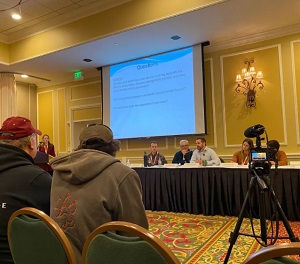
Massive study examines offshore wind’s impact on fishing, fisheries
A just released “first of its kind” report that federal regulators and the fishing industry spent three years working on is making the rounds, exploring the impacts of offshore wind on fisheries and commercial fishermen, and identifying the questions that remain unanswered. They just released their results in a nearly 400-page “Synthesis of Science” report — a collaborative effort between the Bureau of Ocean Energy Management (BOEM), the lead regulator of offshore wind; NOAA’s Northeast Fisheries Science Center; and the Responsible Offshore Development Alliance (RODA), a membership-based coalition of the fishing industry. >click to read< 09:31
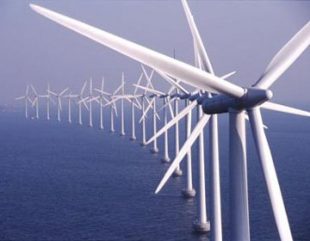
Wind-power auction at Morro Bay shows how money matters in climate projects
This head-scratching story is centered on Morro Bay. When offshore wind development became a public issue there nearly a decade ago, citizens expressed concerns about the impacts of turbines on birds, fisheries, or, even at a distance of 20 miles from land, the natural beauty of the coast. But in 2015, Castle Wind LLC — a joint venture between Washington state-based Trident Winds and the subsidiary of a Germany utility — started a dialogue with residents and stakeholders. Castle Wind, following local leaders’ advice, talked first with fishermen, whose struggles are well-known. After two-plus years of discussions, Castle Wind and two fishermen’s associations forged a novel mutual benefits agreement. >click to read< 10:34
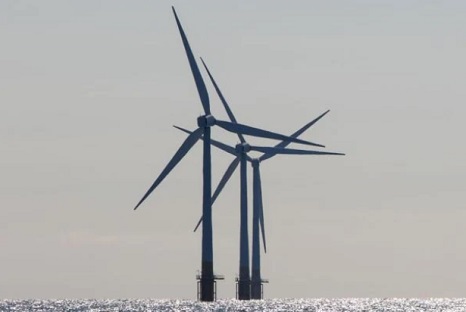
The New Green Activists Would Rather Save The Windmills Than Save The Whales
Save the whales. Once upon a time, that used to be the favorite mantra of environmental activists. Today, not so much. These days, it’s more chic to be into giant offshore wind turbines. And if dozens upon dozens of whales must be killed to make way for turbines along with their new mantra, “save the planet,” well, that’s just the price we must pay. Or so goes the current thinking among the green set. Scores of whale and dolphin carcasses have washed up along the East Coast in recent months, and particularly on New Jersey and New York-area beaches where no fewer than nine whales have washed ashore just since December. The evidence is not yet incontrovertible, but the deaths coincide with sonic testing in conjunction with massive wind turbine projects. >click to read< 08:28
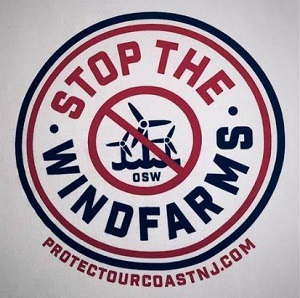
Anti-wind farm petition hits 500,000 signatures
An online petition drive in opposition to offshore wind farms following the deaths of dozens of whales along the East Coast has now hit a milestone of 500,000 signatures. Suzanne Hornick, an Ocean City resident and a founder of Protect Our Coast NJ, the independent grassroots organization that started the petition drive, said the goal is to collect a million signatures as a push continues to halt the wind farm projects. “Protect Our Coast NJ is absolutely thrilled that we have well over half a million signatures on our petition that was only started mid-January. Many of the signers are from states other than New Jersey up and down the East Coast,” Hornick said. “This is a wake-up call to every single politician. If a half a million people can come together against a single issue so quickly, imagine what we will be able to do going forward.” >click to read< 13:11

U.S. identifies Gulf of Maine area for offshore wind development
President Joe Biden’s administration on Tuesday said it had finalized an area of nearly 10 million acres in the Gulf of Maine for potential offshore wind development, a major step toward expanding the industry into northern New England. The announcement was the latest milestone in the government’s plan to put wind turbines along every U.S. coastline to help displace fossil fuel for power generation and fight climate change. In a statement, the U.S. Bureau of Ocean Energy Management said it would kick off a 45-day period for public comment on the area, which sits off the coasts of Massachusetts, New Hampshire and Maine. >click to read< 08:25

The windmill energy fantasy of net-zero carbon emissions is a dangerous ideology jeopardizing national and economic security.
Where is Don Quixote when we need him? His fantasy was to slay giants (in reality, windmills) in his quest to fight injustice through chivalry. Green energy proponents have a carbon dioxide “net zero emissions” fantasy of powering civilization through green energy windmills and solar panels. Green energy advocates are for building windmills with trillions of taxpayer dollars and displacing existing energy and transportation industries. The result is weakening America and aiding the Chinese Communist Party’s (CCP) quest for world domination. Don Quixote’s quest was a fantasy. Green energy advocates’ quest for “net zero” power emissions is also a fantasy — a dangerous fantasy for America. >click to read< 10:38
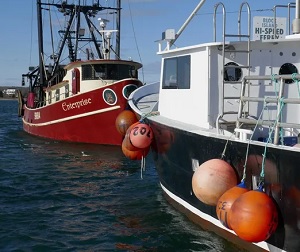
Offshore wind farms bring many uncertainties to RI fishing industry, consumers
I refer to those who fish, commercially, recreationally and for-hire fishermen (charter), as well as those who depend on them to catch fish, such as Rhode Island’s seafood processors, and ultimately consumers. Those who depend on Rhode Island’s millions of dollars of seafood face uncertain futures. This uncertainty is palpable in these communities and there is a feeling that mitigation taking place between wind developers and those who fish lacks consideration of any equity to those being adversely impacted. To many who fish these areas, developing wind farms and their array of cable is little different than strip mining mountains for coal in other parts of the country. By Chris Lee, >click to read< 08:06

Fishery council executive directors warned Biden admin about dangers wind energy projects pose to fishing industry
In an Aug. 22 letter to former Bureau of Ocean Energy Management (BOEM) Director Amanda Lefton, the three officials, who respectively lead the New England, Mid-Atlantic and South Atlantic Fishery Management Councils, expressed concern about current processes for approving offshore wind development. They also made a series of recommendations to help the federal government mitigate impacts on fisheries. “As we have stated in several past comment letters to BOEM, we are very concerned about the cumulative impacts of multiple wind energy projects on the fisheries we manage,” they stated in the letter. “The multiple wind energy projects planned along the east coast will have cumulative and compounding effects on our fisheries.” >click to read< 08:32

Congressman Van Drew: National Security is the Price We Will Pay
On April 17, Congressman Van Drew issued the following statement after the Pentagon sounded the alarms on how the development of offshore wind farms will affect our national security. “During my field hearing in South Jersey last month, my colleagues and I highlighted the adverse effects offshore wind development would have on various sectors and industries, from our environment to our national security, “said Congressman Van Drew. “These warnings can no longer be ignored. This President and this administration continue to disregard these valid concerns,,, >click to read< 08:06
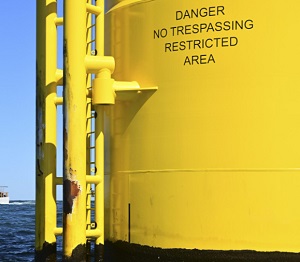
US Navy Sounds Alarm Over Biden’s Offshore Wind Plans
The US Navy and Pentagon are sounding alarms over Biden administration plans to advance offshore wind projects along the central Atlantic US coast, warning that almost all of the new terrain eyed for development conflicts with military operations. Maps shared with industry stakeholders and seen by Bloomberg News show vast red areas that the Navy and Air Force have deemed “highly problematic,” covering prime real estate the Interior Department last year earmarked for leasing off the coasts of North Carolina, Virginia, Maryland and Delaware. The Defense Department’s concerns, which come on top of other conflicts identified by the US Coast Guard, have spooked renewable power developers and US East Coast states counting on mid-Atlantic wind farms to meet clean energy and climate goals. >click to read< 11:18






